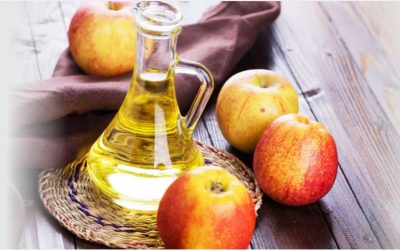Is a Herbal Weight Loss Product Safe for Your Health?
In the quest for natural weight management solutions, herbal weight loss products have gained popularity. From herbal teas to various supplements, these products claim to offer a gentle, natural approach to shedding pounds. However, evaluating their efficacy and safety is essential. This article speaks about the benefits and risks associated with popular herbal weight loss ingredients, including Garcinia cambogia, green coffee bean extract, and green tea.
The Benefits of Herbal Weight Loss Products
-
Natural Ingredients
One of the main reasons people opt for herbal weight loss products is that they contain ingredients derived from nature. Many believe that these natural weight loss supplements offer a safer, more gentle approach to shedding weight compared to synthetic alternatives. Popular ingredients like herbs for weight loss are often perceived as less likely to cause side effects than pharmaceutical options.
-
Appetite Suppression
Certain herbs used in weight loss products can help suppress appetite. Garcinia cambogia, for instance, contains hydroxycitric acid (HCA), which may inhibit fat production and promote feelings of fullness. Studies have shown it can reduce food intake and weight gain , some trials have reported modest weight loss among users who supplemented their diets with Garcinia cambogia.
-
Metabolism Boosting
Another benefit associated with herbal weight loss products is their potential to boost metabolism. Green tea, a well-known herb for weight loss, is rich in catechins and caffeine, which may work together to increase fat oxidation and energy expenditure. Green tea extract, which is often included in herbal tea weight loss formulas, has been studied for its role in modestly reducing body weight and waist circumference.
-
Improved Fat Oxidation
Herbs like green coffee bean extract have shown potential in enhancing fat oxidation. The chlorogenic acid in green coffee beans has been linked to reduced fat accumulation and improved glucose metabolism, potentially aiding in weight loss. Some clinical studies suggest that green coffee bean extract can lead to moderate weight loss when used in conjunction with a healthy diet.
The Risks of Herbal Weight Loss Products
While herbal weight loss products offer potential benefits, they also come with risks. Not all natural weight loss supplements are safe, and some may cause adverse effects or interact with medications. Here’s a closer look at the potential risks of popular herbal ingredients:
Garcinia Cambogia
Source: Garcinia Cambogia
Mechanism: Garcinia Cambogia is believed to work by inhibiting an enzyme called citrate lyase, which plays a role in the production of fat. It also contains hydroxycitric acid (HCA), which may help suppress appetite and increase fat metabolism.
- Safe Dosage: Up to 1,500 mg of HCA daily is generally considered safe.
- Unsafe Dosage: Exceeding 3,000 mg per day may increase the risk of liver toxicity.
Efficacy: The effectiveness of Garcinia Cambogia for weight loss is debated. Some studies suggest modest benefits, while others report minimal or no impact. Results can vary based on the study design and dosage used.
Risks: The long-term safety of Garcinia Cambogia is uncertain. Reports have linked it to liver toxicity, including severe cases that have required liver transplants. Due to these concerns, it’s important to use Garcinia Cambogia with caution and consult a healthcare provider before starting.
Green Coffee Bean Extract
Source: Green Coffee Bean Extract
Mechanism: Green Coffee Bean Extract contains chlorogenic acids, which are thought to reduce the absorption of carbohydrates and improve metabolism. However, the precise mechanism for weight loss is not fully understood.
- Safe Dosage: Up to 400 mg per day is considered safe and effective for healthy adults.
- Unsafe Dosage: More than 600 mg daily may cause side effects like insomnia or an increased heart rate due to its caffeine content.
Efficacy: Some studies suggest that Green Coffee Bean Extract may have weight loss benefits. However, the quality of the research is often poor, and findings are not always consistent. The effectiveness can vary greatly between studies.
Risks: Green Coffee Bean Extract may contain caffeine, which can cause side effects such as headaches, insomnia, and increased heart rate. Additionally, the overall quality of studies is variable, raising concerns about the reliability of the results.
Green Tea Extract
Source: Green Tea Extract
Mechanism: Green Tea Extract contains catechins, particularly epigallocatechin gallate (EGCG), which are believed to boost metabolism and enhance fat oxidation.
- Safe Dosage: 300-400 mg of green tea extract per day (containing 50% catechins) can support weight loss.
- Unsafe Dosage: More than 800 mg daily has been associated with elevated liver enzymes and other liver-related issues.
Efficacy: Green Tea Extract may support weight loss by increasing metabolic rate and fat burning. However, the efficacy can vary based on the dosage and individual response.
Risks: High doses of Green Tea Extract have been linked to liver toxicity. Some users have reported elevated liver enzymes. It’s advisable to monitor liver health and consult a healthcare provider when using high doses.
Glucomannan
Source: Konjac root (Amorphophallus konjac)
Mechanism: Absorbs water in the gastrointestinal tract, increasing satiety and potentially reducing fat and protein absorption.
- Safe Dosage: 3-4 grams per day has shown potential benefits for weight loss.
- Unsafe Dosage: Exceeding 5 grams may cause gastrointestinal issues like bloating and gas.
Efficacy: Mixed results; some studies show positive effects on weight loss, while others indicate minimal or no impact.
Safety: Generally well tolerated short-term but may cause gastrointestinal issues. Tablets can lead to esophageal obstruction.
Guar Gum
Source: Indian cluster bean (Cyamopsis tetragonolobus)
Mechanism: Acts as a bulking agent, potentially increasing satiety and delaying gastric emptying.
- Safe Dosage: Up to 10 grams per day is generally safe for consumption.
- Unsafe Dosage: More than 15 grams daily can lead to significant gastrointestinal issues, including diarrhea and abdominal pain.
Efficacy: Limited evidence suggests no significant weight loss benefits.
Safety: Common side effects include abdominal pain and diarrhea. Without adequate water, it can cause obstructions.
Hoodia Gordonii
Source : A succulent plant native to the Kalahari Desert.
Mechanism : Traditionally believed to suppress appetite, though scientific evidence to support this is limited.
Safe Dosage : To stay within a safe range, it’s recommended to take 250-1,000 mg per day.
Unsafe dosage : Above 1000 mg per day
Efficacy : Research on Hoodia Gordonii’s effectiveness for weight loss is minimal and inconclusive. While some claim it helps curb hunger, most studies have not found significant.
Safety : Hoodia Gordonii is generally considered safe in moderate amounts.
Potential side effects to be aware of: It may increase heart rate and blood pressure in some individuals, particularly in high doses or with long-term use.
Probiotics
Source: Gut microbiota
Mechanism: May influence energy and nutrient extraction, potentially affecting obesity.
Dosage : Dosages vary depending on the strain but are typically considered safe within the range of 1-10 billion CFUs (colony-forming units) per day.
Efficacy: Mixed results; some strains reduce fat and waist circumference, while others show minimal effect.
Safety: Generally safe with minor gastrointestinal side effects; caution for immunocompromised individuals.
Pyruvate
Source: A byproduct of glucose metabolism
Mechanism: May enhance fat loss and energy expenditure.
Safe dosage : Usually safe when taken up to 6 grams per day.
Efficacy: Mixed results; some studies suggest benefits, while others show no significant impact.
Safety: Known side effects include gas and diarrhea.
Raspberry Ketone
Source: Raspberry fruit
Mechanism: May aid fat oxidation and inhibit fat storage.
Safe dosage – The safe dosage for raspberry ketone is typically considered to be 100-200 mg per day.
Efficacy: Limited human research; one study showed modest weight loss.
Safety: High doses have not been fully evaluated for safety.
Vitamin D
Source: Essential for calcium absorption and bone health
Mechanism: Obesity is linked to lower vitamin D levels due to fat sequestration.
Safe dosage – Safe when consumed within the recommended daily intake of 600-800 IU per day
Unsafe dosage – Exceeding 4,000 IU per day may result in vitamin D toxicity.
Efficacy: Supplements alone do not lead to weight loss.
Safety: Safe at recommended intakes but excessive amounts can cause toxicity.
White Kidney Bean Extract
Source: Phaseolus vulgaris
Mechanism: Blocks starch absorption by inhibiting alpha-amylase.
Safe dosage : The safe dosage is around 500-1,500 mg per day.
Efficacy: Clinical trials show mixed results with some benefits in body fat reduction.
Safety: Generally mild side effects like headaches and flatulence.
Yohimbe
Source: Pausinystalia yohimbe
Mechanism: Contains yohimbine, which affects the central nervous system.
Safe dosage : The safe dosage is typically around 5-10 mg per day.
Unsafe dosage: If taken beyond 30 mg it can lead to severe side effects
Efficacy: Mixed results; some studies show weight loss benefits, but evidence is inconsistent.
Safety: High doses can cause severe health issues including hypertension and tachycardia.
Ephedra
Source: Ma Huang
Mechanism: Contains ephedrine, which promotes thermogenesis and appetite suppression.
Safe dosage : The herb is considered highly unsafe at any dosage due to its potent cardiovascular effects.
Efficacy: Modestly effective for short-term weight loss.
Safety: Banned by the FDA due to severe adverse effects including heart attacks and strokes.
Safety Considerations for Weight-Loss Supplements
Weight-loss supplements can have side effects, especially when containing multiple ingredients that may interact or have uncharacterized properties. It’s essential to consult with healthcare providers before using such products to understand their potential risks and benefits.
Fraudulent and Adulterated Weight-Loss Supplements
Beware of Fraudulent Claims
The FDA and FTC caution consumers about weight-loss dietary supplements that make unrealistic promises, such as “lose weight without dieting or exercising” or “just take this pill to lose weight.” Claims that sound too good to be true often are. These products may not only fail to deliver the promised results but could also pose significant health risks.
Adulteration and Tainted Products
Weight-loss supplements can sometimes be adulterated with dangerous substances. Between January 2004 and December 2012, 237 dietary supplements faced Class I recalls by the FDA, indicating a serious risk of adverse health consequences. Of these, 27% were weight-loss products, often recalled due to the presence of undeclared drug ingredients.
In 2016, the FDA issued warnings about weight-loss products containing hidden drug ingredients, such as sibutramine, which had been withdrawn from the U.S. market due to safety concerns. Any product containing unapproved drug ingredients, whether listed on the label or not, is considered an unapproved drug and subject to enforcement actions by the FDA.
Interactions with Medications
Ingredients in weight-loss supplements can interact with various medications, potentially causing harmful effects. For example:
- Glucomannan and guar gum may reduce the absorption of oral medications.
- Glucomannan might lower blood glucose levels, affecting diabetes medications.
- Chitosan may enhance the effects of anticoagulants like warfarin.
- Green tea could interact with chemotherapy drugs.
- Garcinia cambogia has been linked to serotonin toxicity when combined with certain antidepressants.
- Caffeine and bitter orange may have additive effects when taken with other stimulants, and bitter orange can inhibit CYP3A4, increasing blood levels of some drugs.
It’s essential for individuals taking dietary supplements and medications to consult their healthcare providers to avoid adverse interactions.
Sensible Approach to Weight Loss
The evidence supporting weight-loss dietary supplements is often inconclusive. The most effective and sustainable way to lose weight and maintain it is through a balanced approach involving:
- Healthy Eating: Following a nutritious diet with a variety of vegetables, fruits, whole grains, lean proteins, and healthy fats.
- Physical Activity: Incorporating moderate exercise into your routine.
- Medical Guidance: For those with a high BMI or additional health risks, healthcare providers might prescribe FDA-approved medications or consider bariatric surgery.
Remember, while some weight-loss supplements may offer short-term benefits, a balanced diet and exercise remain the most reliable methods for achieving and maintaining a healthy weight.
Summary
Herbal weight loss products offer potential benefits but come with significant risks. The effectiveness and safety of these supplements vary, and many may pose serious health concerns. For safer and more effective weight management, focus on a healthy lifestyle and seek medical advice when needed.
References:
- Adverse events of herbal food supplements for body weight reduction: systematic review – 2005 May –https://pubmed.ncbi.nlm.nih.gov/15836459/
- How safe is the use of herbal weight-loss products sold over the internet? – 2013 Jan – https://pubmed.ncbi.nlm.nih.gov/22354083/
- Dietary Supplements for Weight Loss- https://ods.od.nih.gov/factsheets/WeightLoss-HealthProfessional/
- Effectiveness of herbal medicines for weight loss: A systematic review and meta-analysis of randomized controlled trials – 2020 June – https://pubmed.ncbi.nlm.nih.gov/31984610/
- Safety of herbal medicine in treatment of weight loss – 2014 Jan – https://www.ncbi.nlm.nih.gov/pmc/articles/PMC4063522/











